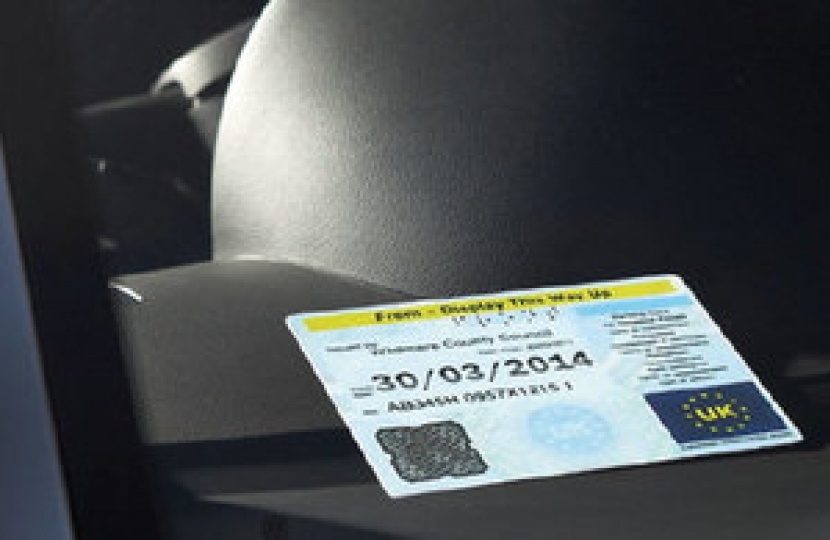
Plans to enable more people with “hidden disabilities” to have Blue Badges have been welcomed by MP for North Cornwall Scott Mann, who has previously called on the Government to make it easier for people with dementia to get a Blue Badge.
The proposals, which would see the most significant changes since the blue badge was introduced in 1970, would help remove barriers to travel for people with conditions such as dementia and autism, allowing them better access to work, shops and amenities.
Around 2.4 million disabled people in England currently have a blue badge, allowing them to park on roads without charge and normally without time limit. Around 75% of blue badge holders say they would go out less often if they didn’t have one.
Transport Minister Jesse Norman said:
“Blue badges give people with disabilities the freedom to get jobs, see friends or go to the shops with as much ease as possible.
“We want to try to extend this to people with invisible disabilities, so they can enjoy the freedom to get out and about, where and when they want.”
In 2015, Scott wrote to the Department for Transport (DfT) highlighting the fact that dementia can have an impact on mobility, even if it’s not visible, and that the challenges this creates should be taken into account for blue badges.
Scott Mann said:
“I very much welcome the Government’s proposals to expand the criteria for blue badges which will be a huge benefit for people who have mobility issues but which aren’t always visible.
“Back in 2015 I wrote to the DfT asking them to consider this because I know how much it would help people with dementia and autism, and I know many other people support this move as well.
“The department has launched an eight week consultation on the proposals and I hope many people in Cornwall respond to it with their personal experiences and feedback.”
The consultation on the proposals can be found here.
